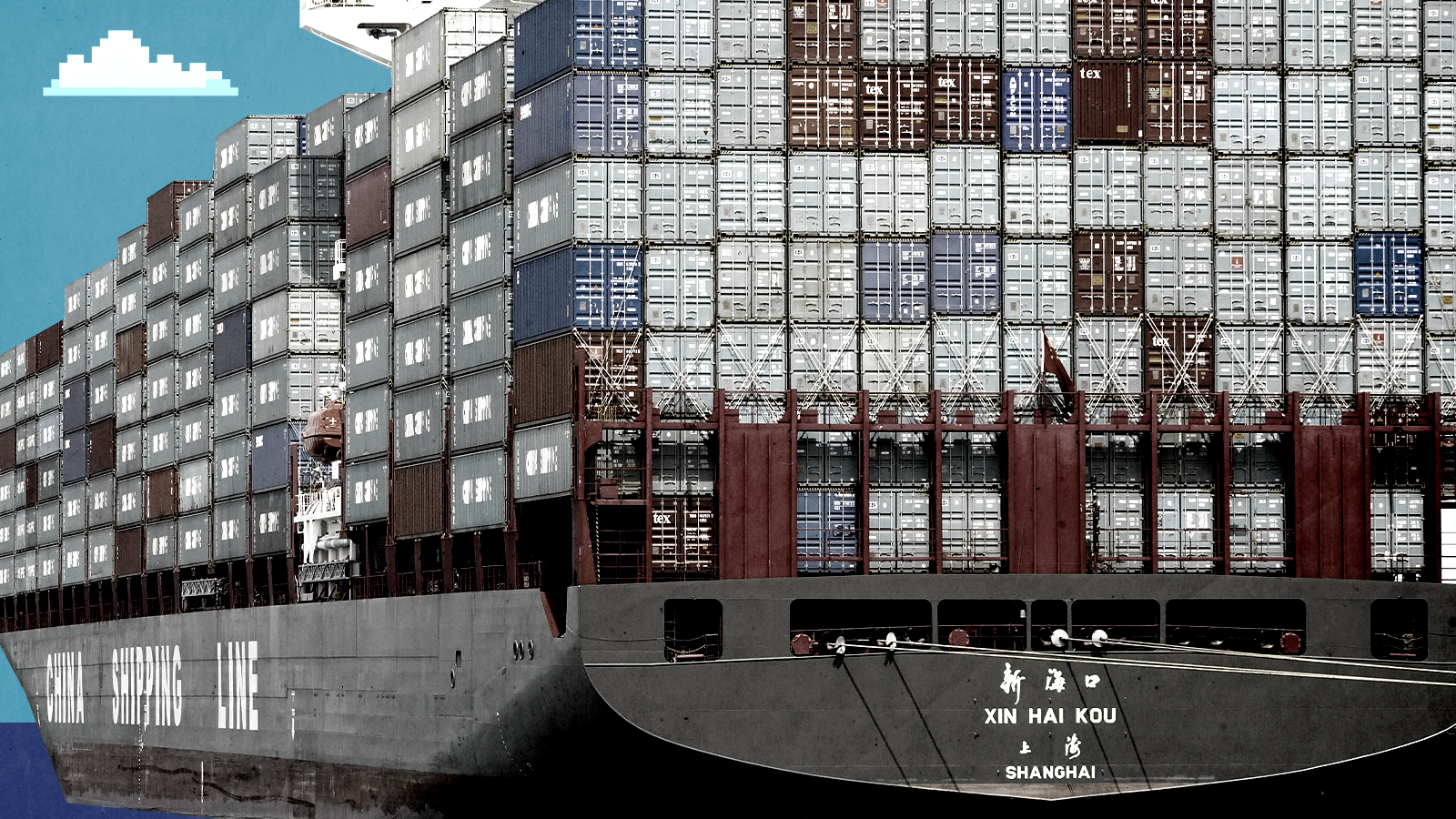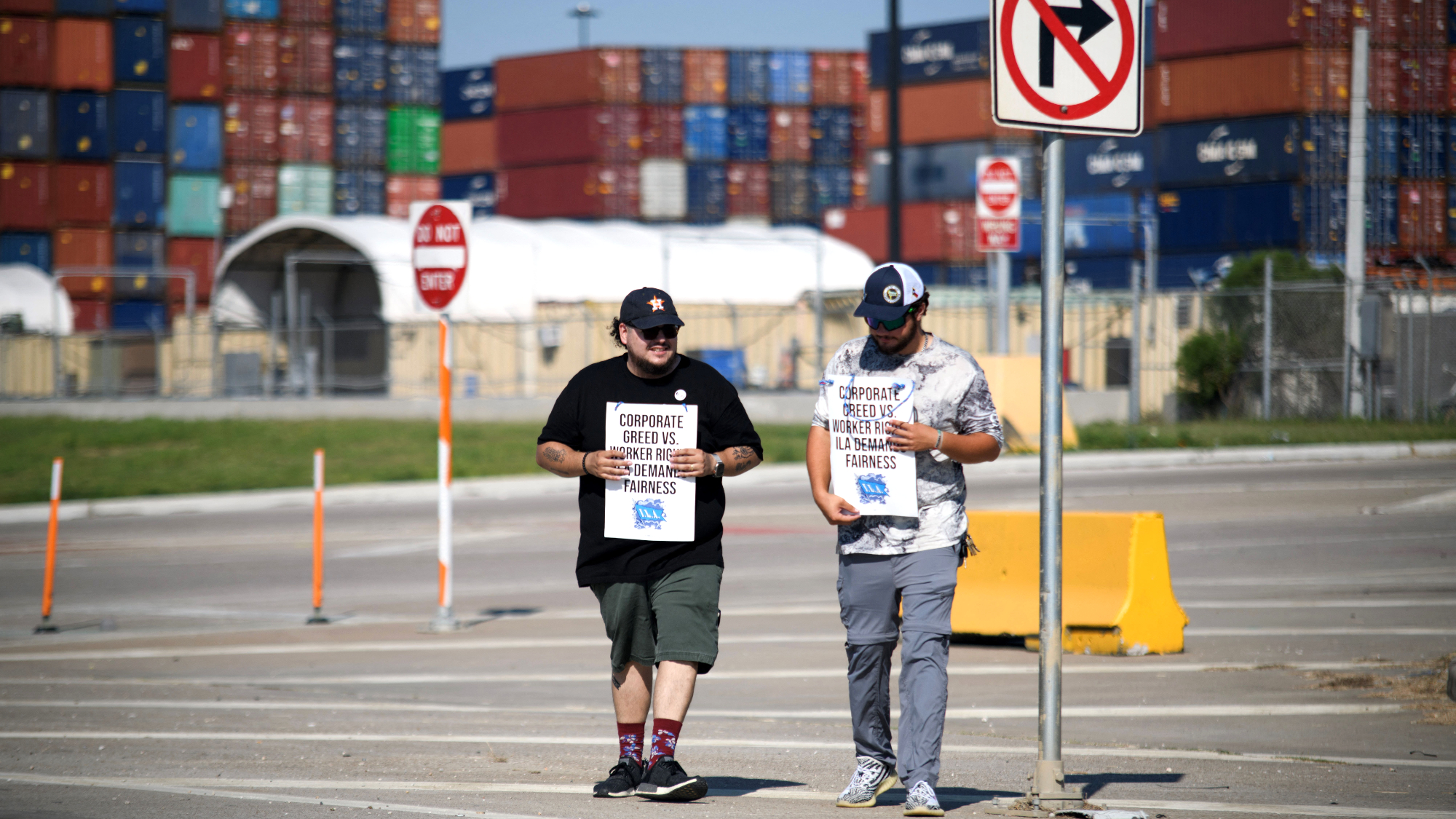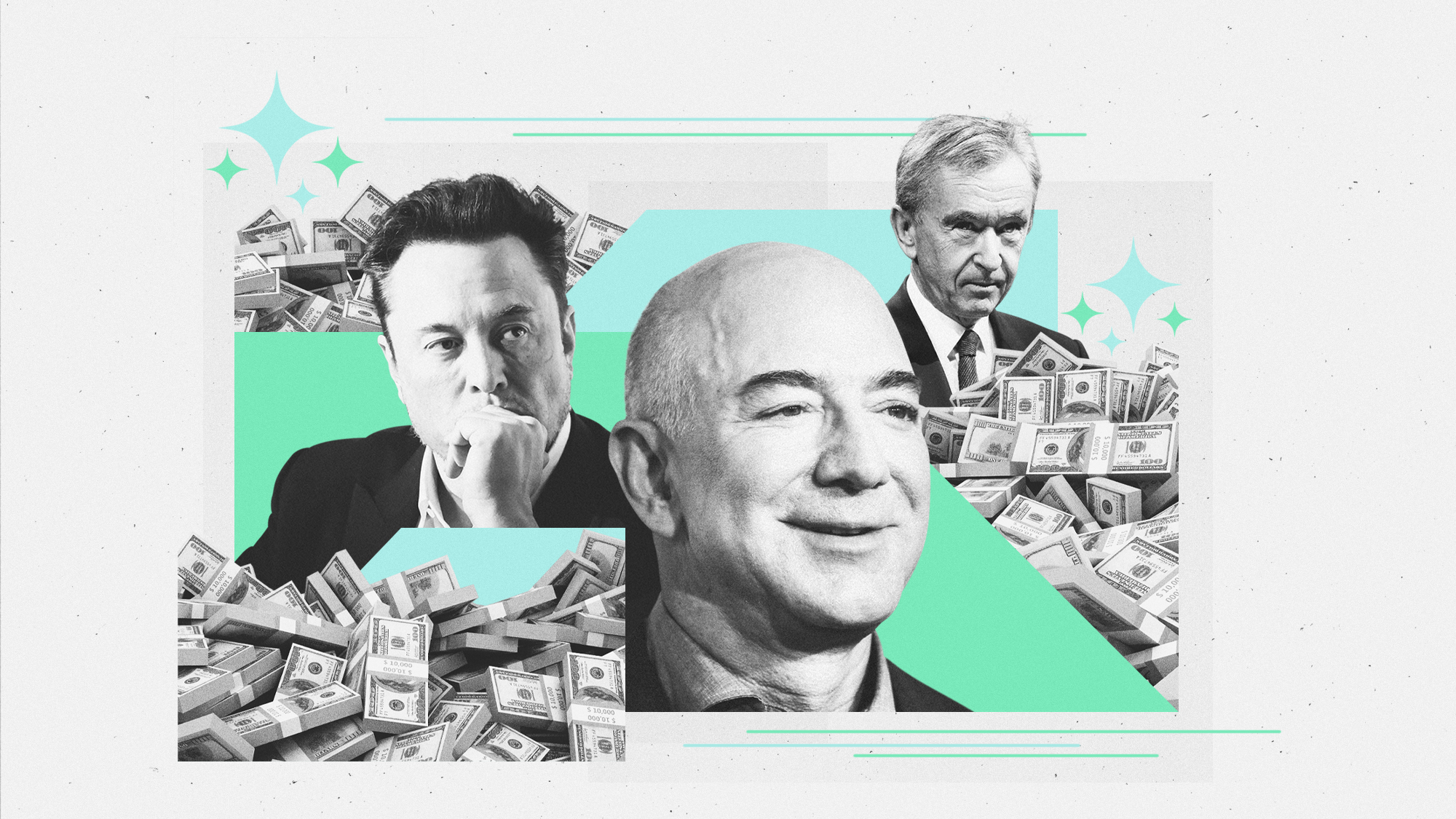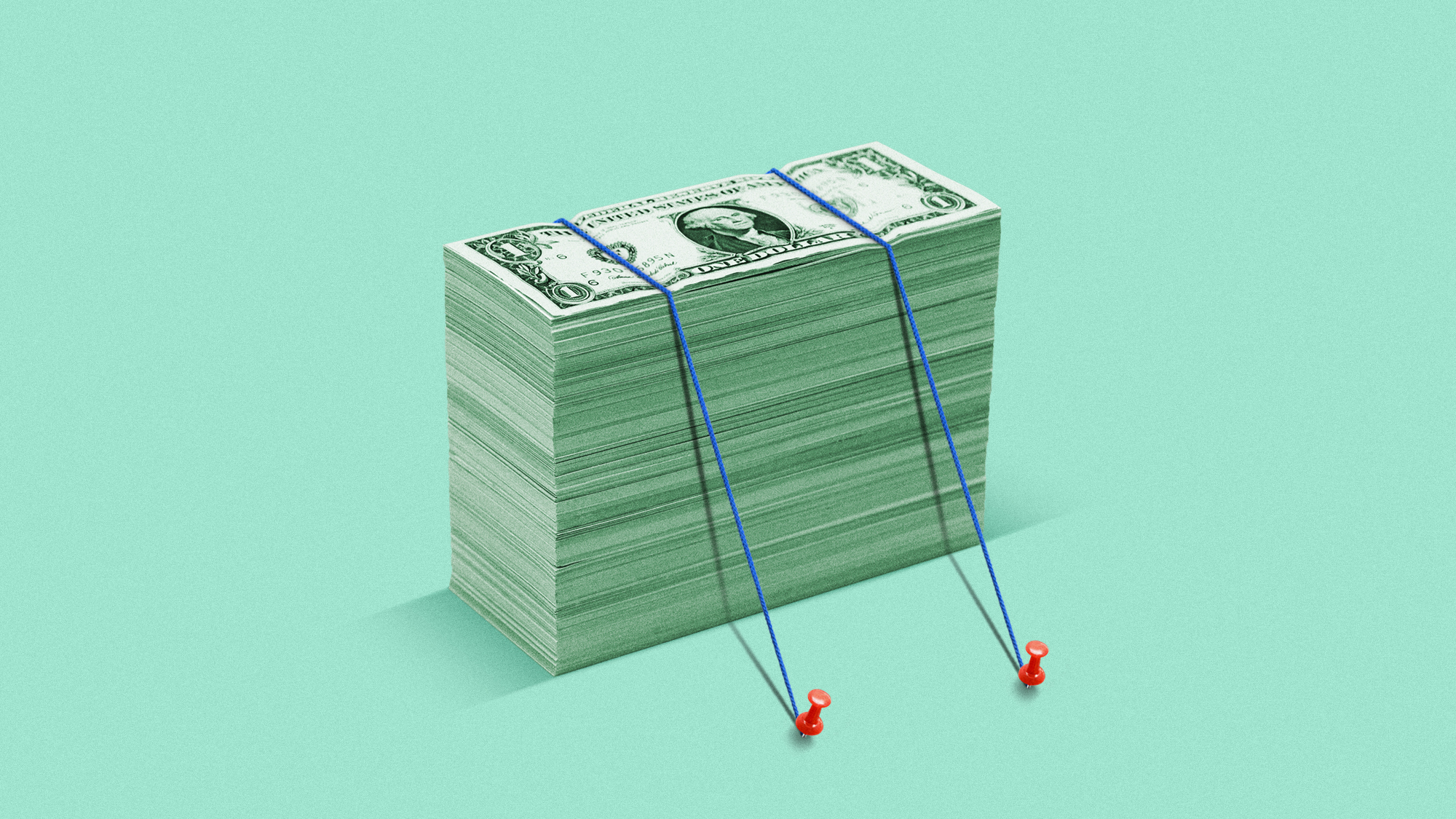The supply chain fiasco
Supply chain issues are making it harder to fill shelves and get a variety of products into the hands of consumers. Here's what you need to know.


A free daily email with the biggest news stories of the day – and the best features from TheWeek.com
You are now subscribed
Your newsletter sign-up was successful
Supply chain issues are making it harder to fill shelves and get a variety of products — from bicycles to computers to jeans — into the hands of consumers. Here's what you need to know.
Why isn't the global supply chain working?
The pandemic has affected all facets of life, with manufacturing hit especially hard. Americans have been using their stimulus money to go shopping, and demand for products is high, but there are shortages of raw materials and items like semiconductor chips, a necessity for the tech and automotive industries. COVID-19 outbreaks fueled by the highly contagious Delta variant also continue to shut down overseas factories, especially in areas where it's harder to get vaccinated. For example, in China, where there's zero tolerance when it comes to COVID-19 cases, an entire terminal at the Ningo-Zhoushan port was closed in August when a worker tested positive, slowing down operations at the world's third-busiest port. Despite the setbacks, there are still a lot of cargo ships arriving in the United States, but because there aren't enough dock employees to quickly unload them, there's a backlog, and dozens of vessels are waiting their turn near the ports. On top of all that, there are shortages of truck drivers to transport the items and retail and warehouse workers to stock the shelves.
The Week
Escape your echo chamber. Get the facts behind the news, plus analysis from multiple perspectives.

Sign up for The Week's Free Newsletters
From our morning news briefing to a weekly Good News Newsletter, get the best of The Week delivered directly to your inbox.
From our morning news briefing to a weekly Good News Newsletter, get the best of The Week delivered directly to your inbox.
Did the pandemic cause these labor shortages?
Not really. While the pandemic did make it harder for new truck drivers to get their permits and licenses, the U.S. has been dealing with a lack of drivers for several years. People are retiring, new drivers are reluctant to take on the long-haul routes, and there's a high turnover rate. Lots of trucking companies are trying to lure new employees with big signing bonuses and higher wages, and the industry is pushing to lower the minimum age for interstate drivers from 21 to 18. The dock worker shortage is due to the high volume of cargo and the ports being beyond capacity.
What's being done to try to clear the bottlenecks?
The adjacent Ports of Los Angeles and Long Beach receive nearly half of all imports into the United States, and both have agreed to start operating 24 hours a day, seven days a week. Previously, they were generally only open to trucks on weekdays, with limited weekend hours. Some are skeptical that this change will make a big difference, because other parts of the supply chain — like trucking companies and warehouses — will also need to be up and running 24/7 to move out the cargo and load it at its next stop. President Biden is hopeful, though, saying that the ports will now be open more than 60 extra hours a week, moving goods during less-crowded hours so they can get to their destinations faster. This, he said, has "the potential to be a game changer." Additionally, major retailers like Target, Walmart, and Home Depot, as well as FedEx and UPS, have pledged to clear cargo out of the ports and into stores at a faster pace.
A free daily email with the biggest news stories of the day – and the best features from TheWeek.com
Is there anything else the White House can do?
Matthew Sherwood, a global economist at the Economist Intelligence Unit, told the Los Angeles Times that the White House is "fairly limited" in how it can respond. The world is still dealing with a pandemic, and Biden can't hire truck drivers or tell overseas factories how to operate. "I think the administration is doing what it can, but the reality is there's not that much it can do beyond what they're announcing," Sherwood said. White House Press Secretary Jen Psaki said she can't "make a prediction" on when the supply chain issues will be alleviated, adding that the administration is using "every lever at the federal government's disposal to reduce delays."
How is all of this affecting prices?
The disruptions in the supply chain drove up consumer prices 5.4 percent in September, the highest rate in more than a decade. Shipping prices have risen sharply — it is now 10 times more expensive to get a container from China to the West Coast of the United States compared to pre-pandemic times — and manufacturers pass that cost to consumers. This isn't just a problem in the United States: Because supply isn't meeting demand, the International Monetary Fund said it is lowering its 2021 growth forecast for advanced economies like the U.S., Japan, and Germany, and raising its inflation outlook. The IMF said it's likely that by mid-2022, inflation will stabilize in most places, but central banks "should absolutely be vigilant about what's happening."
Could this lead to more manufacturing being done in the U.S.?
Now that it's clear how vulnerable the global supply chain is, some experts say it's likely companies will start considering moving production out of Asia back to the United States or to closer markets, like Mexico. "Instead of having 90 percent [of production] in one geography, I'm going to have 30/30/40 — split it up between three geographies," Michael Farlekas, CEO of the supply chain software company E2open, told the Financial Times. Mario Cordero, executive director of the Port of Long Beach, told FT he thinks U.S. companies might start looking at Brazil as an option, but he doesn't see "a short-term change. China will continue to be the epicenter of manufacturing."
How will this affect holiday shopping?
Retailers are telling consumers not to wait until Black Friday or Cyber Monday — start buying gifts now. Even with the ports preparing to operate round-the-clock, there will be delays in getting goods on the shelves, and some items aren't even expected to be available until 2022. "There will be things that people can't get," a senior White House official told Reuters, adding, "At the same time, a lot of these goods are hopefully substitutable by other things. ... I don't think there's any real reason to be panicked, but we all feel the frustration and there's a certain need for patience to help get through a relatively short period of time." Instead of focusing on what's available at the big box stores, shoppers should consider buying from local artisans or going back to basics and making homemade gifts.
Catherine Garcia has worked as a senior writer at The Week since 2014. Her writing and reporting have appeared in Entertainment Weekly, The New York Times, Wirecutter, NBC News and "The Book of Jezebel," among others. She's a graduate of the University of Redlands and the Columbia University Graduate School of Journalism.
-
 Political cartoons for February 14
Political cartoons for February 14Cartoons Saturday's political cartoons include a Valentine's grift, Hillary on the hook, and more
-
 Tourangelle-style pork with prunes recipe
Tourangelle-style pork with prunes recipeThe Week Recommends This traditional, rustic dish is a French classic
-
 The Epstein files: glimpses of a deeply disturbing world
The Epstein files: glimpses of a deeply disturbing worldIn the Spotlight Trove of released documents paint a picture of depravity and privilege in which men hold the cards, and women are powerless or peripheral
-
 Ports reopen after dockworkers halt strike
Ports reopen after dockworkers halt strikeSpeed Read The 36 ports that closed this week, from Maine to Texas, will start reopening today
-
 The rise of the world's first trillionaire
The rise of the world's first trillionairein depth When will it happen, and who will it be?
-
 Would Trump's tariff proposals lift the US economy or break it?
Would Trump's tariff proposals lift the US economy or break it?Talking Points Economists say fees would raise prices for American families
-
 Will college Gaza protests tip the US election?
Will college Gaza protests tip the US election?Talking Points Gaza protests on U.S. campuses pose problems for Biden like the ones that hurt Lyndon B. Johnson in the '60s
-
 Can Trump get a fair trial?
Can Trump get a fair trial?Talking Points Donald Trump says he can't get a fair trial in heavily Democratic Manhattan as his hush money case starts
-
 What RFK Jr.'s running mate pick says about his candidacy
What RFK Jr.'s running mate pick says about his candidacyTalking Points Robert F. Kennedy Jr.'s' running mate brings money and pro-abortion-rights cred to his longshot presidential bid
-
 Housing costs: the root of US economic malaise?
Housing costs: the root of US economic malaise?speed read Many voters are troubled by the housing affordability crisis
-
 Did the Biden impeachment inquiry just collapse?
Did the Biden impeachment inquiry just collapse?Talking Points Key GOP impeachment inquiry witness Alexander Smirnov says Russian intelligence fed him lies
